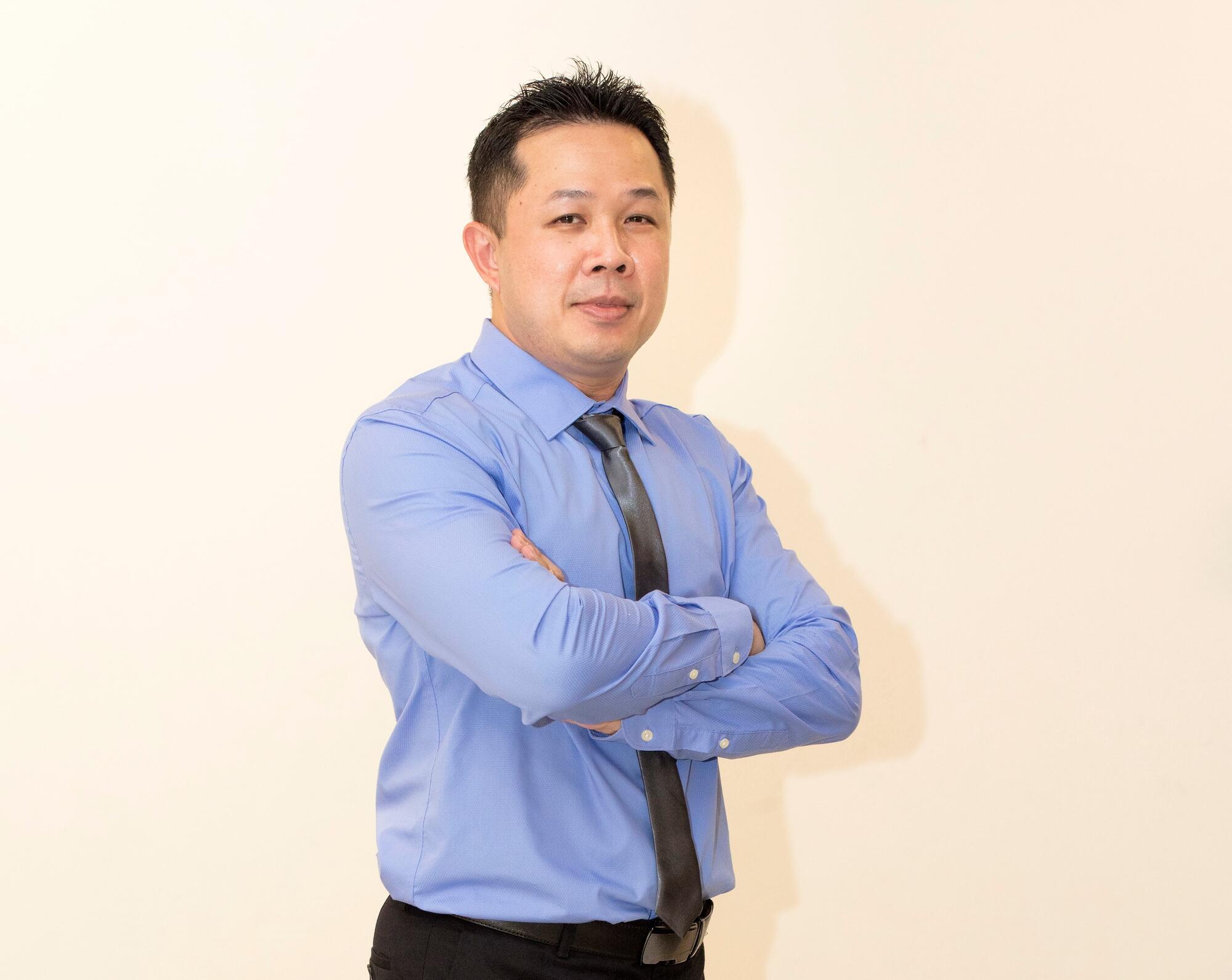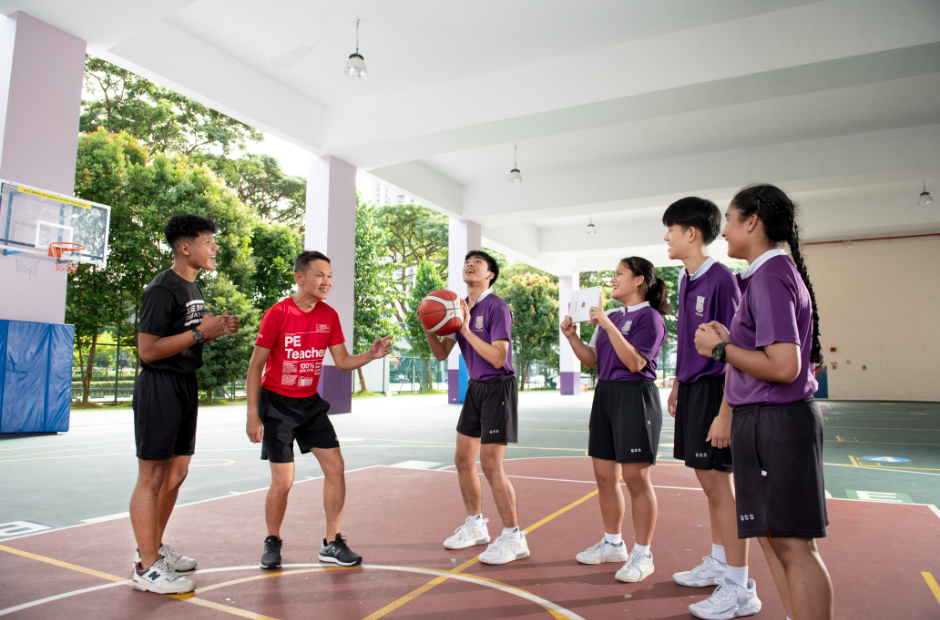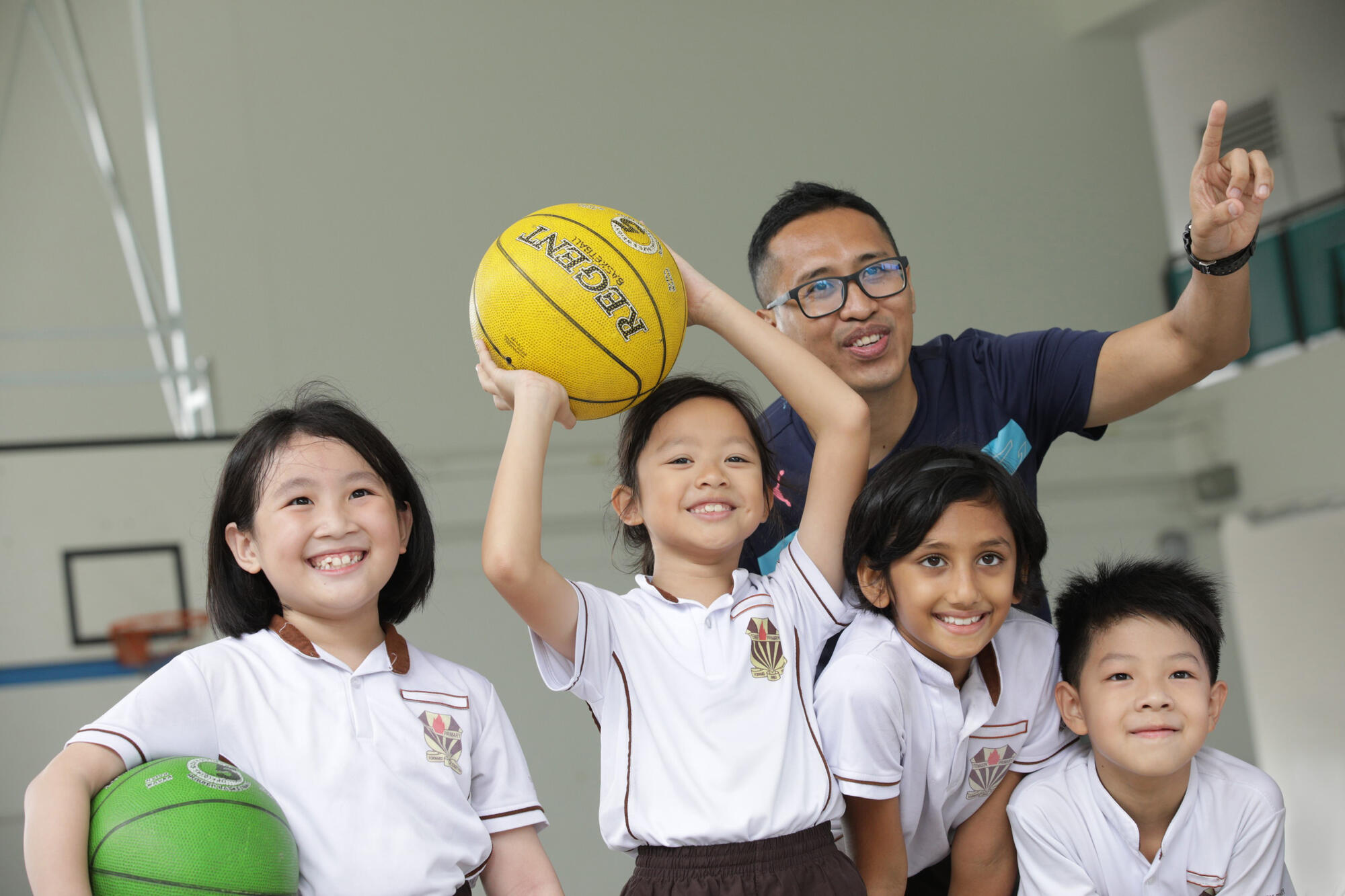Mr Vincent Heng Swee Chye, Kent Ridge Secondary, President’s Award for Teachers 2020 Finalist
When Vincent Heng Swee Chye was assigned his first form class, his colleagues warned that he was in for a tough time. The year was 2005, and Vincent was a newly graduated Mathematics and Physical Education (PE) teacher at Kent Ridge Secondary. He took charge of a Secondary 3 class, which comprised students with challenging backgrounds and learning difficulties. Most of them, as he recalls, were “academically average at best”.
But Vincent looks back on this memory with fondness. It was this first class that shaped his philosophy as a teacher for the next 16 years – an approach that balances tough love and tender care.
He recalls, “I thought hard about how to handle students with such diverse backgrounds; how I should engage this group, to build up their character and help them excel in school. I had good colleagues, who shared their notes from teaching this class, explaining that the challenge wasn’t in bad behaviour per se, but in their attitude towards learning.”
The going gets tough
His first act as form teacher was to set up the class committee. He decided to take a chance on the “so-called difficult ones”. One of them was Dawn Ong, who was defiant to many teachers. But Vincent saw leadership qualities in her and made a calculated risk to appoint her Class Vice-Chairperson.
Once, Dawn lost her temper over the obstinacy of her classmates. Vincent had tasked the class to set up a booth at the Secondary 3 Entrepreneurship Fair. They would design home-made products to sell (such as personalised clothes pegs or doodle artworks), and brainstorm ideas to market them. He says, “The intention was to get them to work together as a group, and learn different competencies like self-management, social awareness and relationship management.”
Dawn had ideas for pricing and product design but met with objections from her classmates. “She got very angry with the entire process and asked why she couldn’t have it her way,” Vincent says. Instead of reprimanding her, Vincent intervened by coaching her to work through disagreements.
These are the “opportunities for learning” and the interactions between teacher and student that Vincent was determined to create in Kent Ridge Secondary. “If my students do something wrong, I think of it as an opportunity for me to work with them and point their moral compass in the right direction.”
The project became one of the milestones for the class when they successfully promoted and sold their hand-made items to schoolmates and teachers. By year end, this “average at best” class was transformed into a group of motivated go-getters. Dawn was praised by her subject teachers as an exemplary student. The entire class passed the Secondary Three exams, and all the students’ report cards lauded their good conduct.
Vincent says, “They began to understand that if you put in heart and effort into something, you will experience success even if you encounter difficulties along the way. That is the same idea for education as well.”
Giving every kid a chance to shine
This basic premise laid the foundation for programmes that Vincent would later launch in Kent Ridge Secondary. In 2006, Vincent launched the Sports Leaders Programme to allow more students to take on leadership roles by officiating at school sport events, among other related duties. Sports Leaders also organised the Kent Ridge Olympics – a five-day sport event – for the entire school.
In 2013, Vincent mooted the idea of an “experiential week” for Secondary 1 to 5. It was a mix of school-based games, excursions and outdoor camps, with the goal of building stronger teacher-student relationships, and helping students gain a better perspective of their school’s approach to learning.
He says, “We saw a steady improvement in the student-teacher relationship. Surveys showed that students were interacting more with teachers, and teachers were happier. Student conduct has also improved, and many are able to make better decisions.”
In 2014, under Vincent’s direction, students from the performing arts CCA put on a show called ‘Vivace!’, a small concert in the school hall for their parents. “The students pulled off an impressive performance that stunned and impressed their parents,” says Vincent.
Glowing from the success of that concert, the students pressed for a repeat performance. In 2016 and again in 2018 ‘Vivace!’ was staged as a ticketed show at a performing theatre, with funds raised going to Movement for the Intellectually Disabled of Singapore (MINDS).
Today, the Experiential Learning Week and the ‘Vivace’ concert series have become signature events of the school.
Balancing care and discipline
Vincent now heads the departments for PE and Co-curricular Activities (CCA) at Kent Ridge Secondary. If there is one aspect of education that he has dedicated his 16 years to understanding, it would be discipline.
To him, discipline is not about meting out punishments. It is about turning moments of wrong-doing into opportunities to explain what went wrong and provide students with better routines to follow. One practice he has found useful is setting class rules: hand in school work on time; do not skip school; be attentive in all classes. Fall short of any of these rules and students would be pressed to explain themselves.
“To care for students, respect and discipline have to be part of the equation,” he says. “When it comes to the classes I am teaching and the students I am interacting with, the most important thing is to get them to understand what our expectations for them are when it comes to learning. Once we have this common understanding, we can work towards our lesson objectives. Students who are not able to meet these expectations would usually be able to explain why.”
Of course, the wayward ones will require firmer intervention.
One example is Reymus Tan, who is in Secondary 5 this year. “He was a difficult student with anger management issues,” says Vincent. “I was his PE teacher when he entered Secondary 1, which was when the unpleasant interactions began. He would come to school with unacceptable hairstyle and attire, and would be rude to any teacher who tried to correct him.”
Vincent spoke to Reymus’ form teacher a lot, and compared notes as they worked together to understand the reasons behind the outbursts. “It took us one to two years, working with Reymus, to realise what was happening. He faced family pressure to get much better academic results, but was frustrated he could not meet those expectations.”
Vincent says, “I would often remind him, ‘when things are not happening the way we want it to be, it is our duty to work on finding solutions’. Slowly, he opened up. That was when I was able to help him.”
In Secondary 3, Reymus took an interest in Tchoukball, a high-intensity team sport with seven players a side.
Sports came in handy at this juncture, says Vincent. He was the one Reymus now turned to for advice on how to pursue this interest. Vincent recalls, “That was the start of our journey, and our relationship got better. He joined an external club first and was chosen to represent the club for a national competition. Then, I invited him to join the school team, which was a student-interest group started by his seniors.”
Kent Ridge Secondary has had a short history in Tchoukball. But Vincent says the team’s reputation has grown in that short period of time, and Reymus played a big role in that. The wayward student made it to captain of the school team when he was in Secondary 4.
Vincent says, “He was very convincing as a captain. When his seniors graduated last year, Reymus formed his own team, and they went on to make school history at the national Tchoukball competition, by clinching second place of their division.
“The transformation in him is really remarkable. He transformed from a hot-tempered young man into someone who is receptive, mature and seeks to understand where you’re coming from so that he can make corrections.”
This is what Vincent means when he tells people that “care is discipline”. It’s an idea he holds close to his heart. “When I care for my students, I will take every opportunity available to discipline a student and every opportunity to sing his praise. The greatest power I have as a teacher is to empower and develop the character of my students.”






